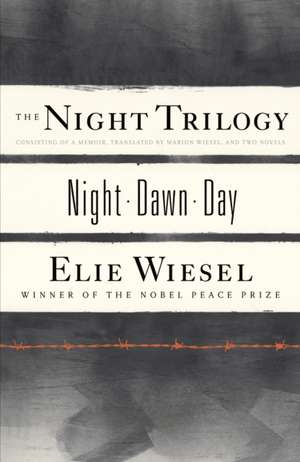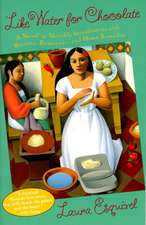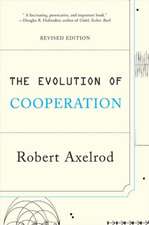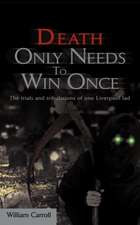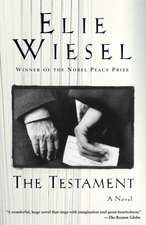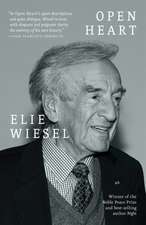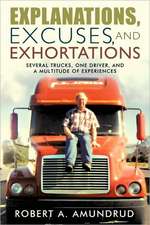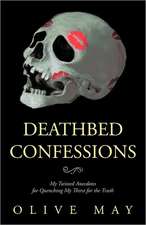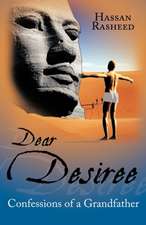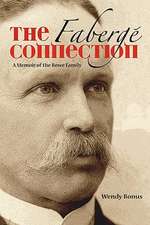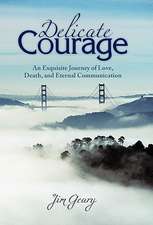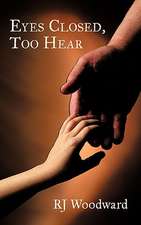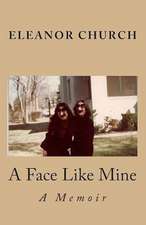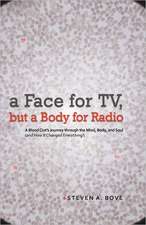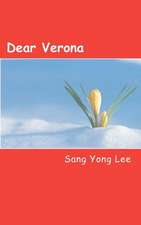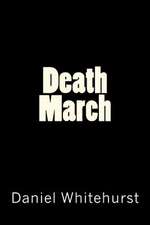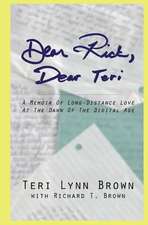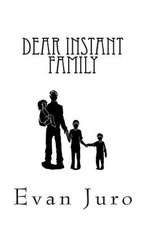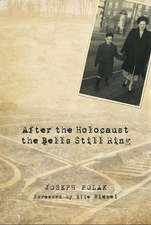The Night Trilogy: Night/Dawn/Day
Autor Elie Wieselen Limba Engleză Paperback – 31 mar 2008 – vârsta de la 14 până la 18 ani
"Night" is one of the masterpieces of Holocaust literature. First published in 1958, it is the autobiographical account of an adolescent boy and his father in Auschwitz. Elie Wiesel writes of their battle for survival and of his battle with God for a way to understand the wanton cruelty he witnesses each day. In the short novel "Dawn" (1960), a young man who has survived World War II and settled in Palestine joins a Jewish underground movement and is commanded to execute a British officer who has been taken hostage. In "Day" (previously titled "The Accident," 1961), Wiesel questions the limits of conscience: Can Holocaust survivors forge a new life despite their memories? Wiesel's trilogy offers insights on mankind's attraction to violence and on the temptation of self-destruction.
Preț: 117.76 lei
Nou
22.54€ • 23.68$ • 18.94£
Carte disponibilă
Livrare economică 18 februarie-04 martie
Livrare express 04-08 februarie pentru 34.27 lei
Specificații
ISBN-10: 0809073641
Pagini: 339
Dimensiuni: 138 x 209 x 23 mm
Greutate: 0.3 kg
Ediția:First.
Editura: Hill & Wang
